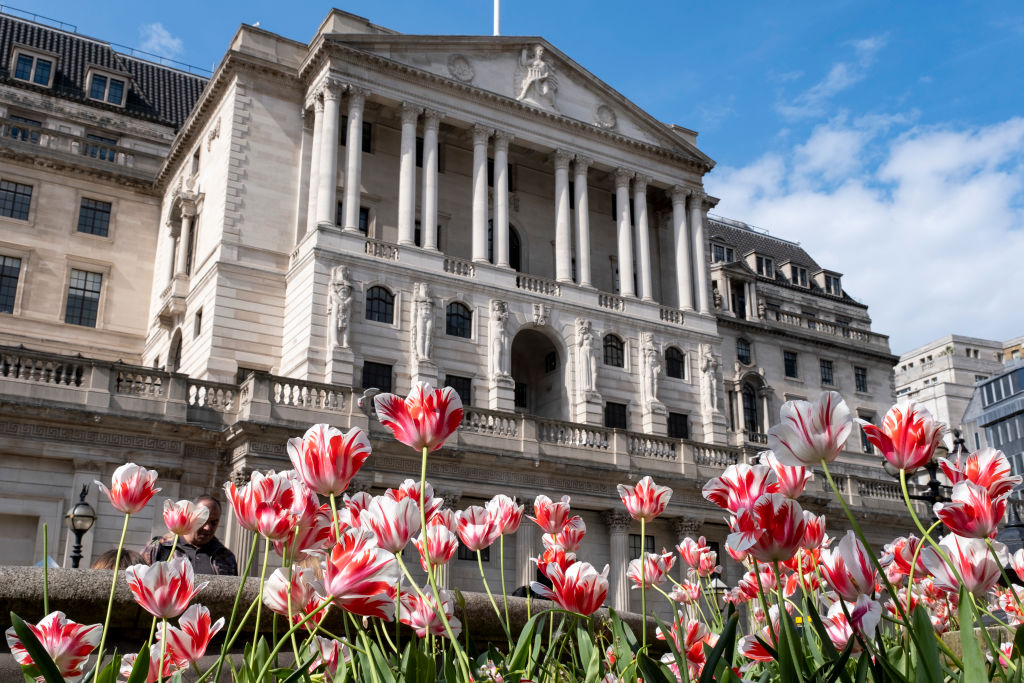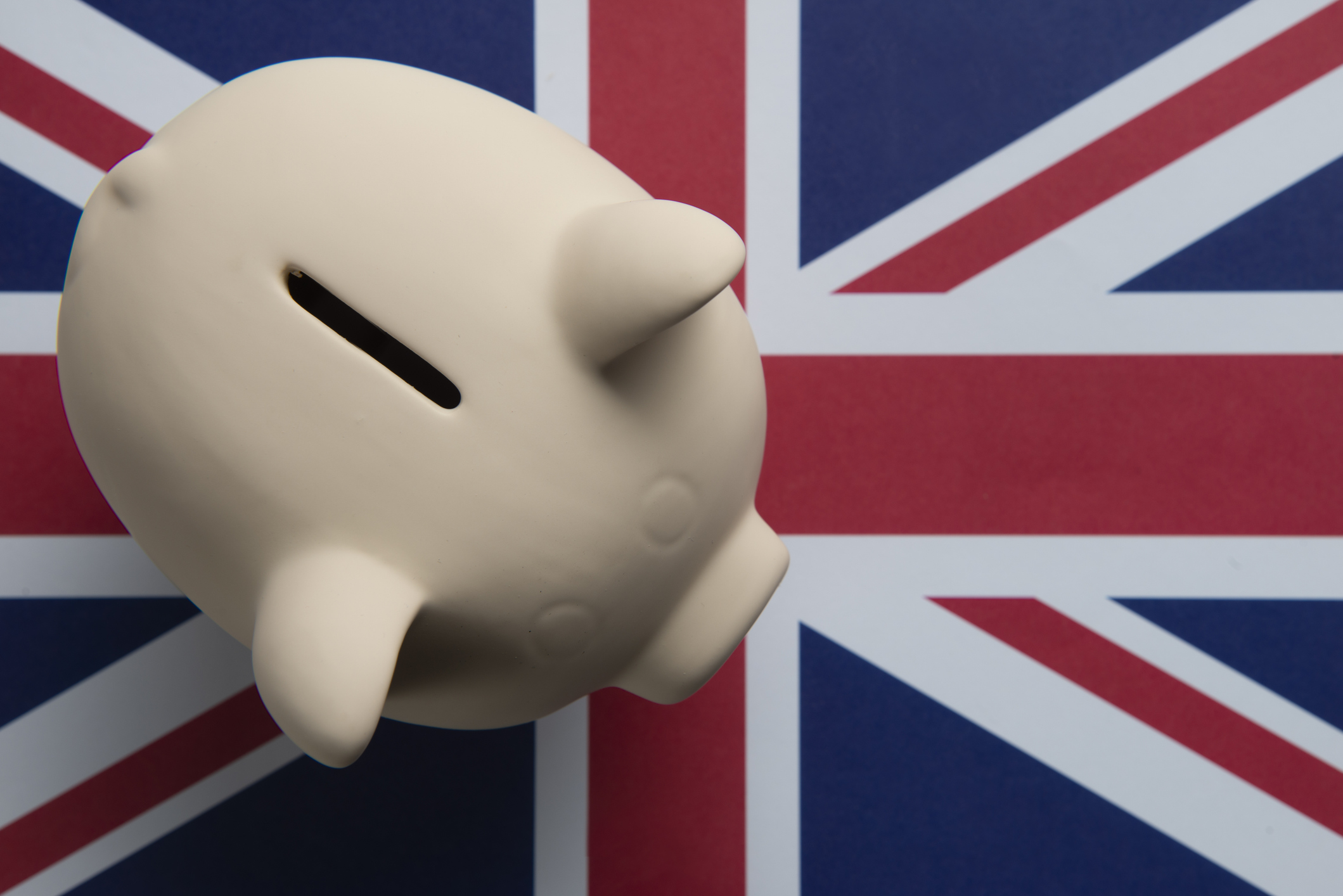Bank of England holds interest rates at 16-year high
Interest rates have been frozen at 5.25% for the sixth consecutive monetary policy meeting. Here is what it means for your money.


Get the latest financial news, insights and expert analysis from our award-winning MoneyWeek team, to help you understand what really matters when it comes to your finances.
You are now subscribed
Your newsletter sign-up was successful
Want to add more newsletters?

Twice daily
MoneyWeek
Get the latest financial news, insights and expert analysis from our award-winning MoneyWeek team, to help you understand what really matters when it comes to your finances.

Four times a week
Look After My Bills
Sign up to our free money-saving newsletter, filled with the latest news and expert advice to help you find the best tips and deals for managing your bills. Start saving today!
Interest rates have been held at their 16-year high of 5.25% by the Bank of England (BoE).
It is the sixth consecutive monetary policy committee (MPC) meeting where interest rates have remained frozen in a blow for mortgage borrowers hoping for some relief from recent price rises on home loans.
The cost of borrowing has now been stuck at 5.25% since August 2023 after the BoE spent much of the first half of the year raising rates to combat double digit inflation.
MoneyWeek
Subscribe to MoneyWeek today and get your first six magazine issues absolutely FREE

Sign up to Money Morning
Don't miss the latest investment and personal finances news, market analysis, plus money-saving tips with our free twice-daily newsletter
Don't miss the latest investment and personal finances news, market analysis, plus money-saving tips with our free twice-daily newsletter
MPC members voted to hold the rate by 7-2 votes, which is a shift from the 8-1 split in the previous month, indicating that there is a gradual shift towards an eventual cut.
Minutes from the MPC meeting highlighted that while inflation has continued to fall back, it remains "elevated."
This means monetary policy will need to "remain restrictive for sufficiently long to return inflation to the 2% target sustainably," the minutes said.
"The committee has judged since last autumn that monetary policy needs to be restrictive for an extended period of time until the risk of inflation becoming embedded above the 2% target dissipates," the MPC said.
Laura Suter, director of personal finance at AJ Bell, says the real impact of a delay in rate cuts will be felt by homeowners, who will have to endure higher rates for longer.
"It means more people will come off their cheap mortgage deals and onto higher interest rates before base rate is cut," she says.
"It also means that those people who gambled on a tracker deal at the start of the year, in the hope of imminent rate cuts, will have to pay their mortgage on higher rates for longer."
What is the outlook for UK interest rates?
Analysts and borrowers have spent much of the year wondering when will interest rates go down in 2024.
There were hopes that a rate cut would materialise early this year as inflation has started to slow, hitting a three-year low of 3.2% in March.
But it hasn’t dropped as fast as the markets hoped and remains above the BoE’s 2% target, pushing back expectations of a cut.
It comes as across the pond in the US, the Federal Reserve has indicated that there may not be any rate cuts this year, which could have an impact on the Bank of England’s policy.
The voting pattern may provide some hope though as while seven members backed holding rates, two voted for a 0.25 percentage points reduction to 5%.
Just one member had backed a reduction in the previous March meeting.
The freeze won’t be much comfort for borrowers hoping for some respite from consistently high borrowing costs, warns Alice Haine, personal finance analyst at Bestinvest.
“What was comforting, however, was the shift in sentiment from the rate-setting MPC with signals that softening UK inflation is paving the way for rate cuts in the coming months," she says.
“The BoE may be sticking by its ‘higher for longer’ stance for now but with inflation falling to 3.2% in the 12 months to March and expected to retreat further in April, a reflection of the latest reduction in the Ofgem Energy Price Cap, eyes will be firmly pinned on the summer to see how soon the central bank makes its first move to cut the base rate.
"Whether there will only be one interest rate cut or more before the year is out remains to be seen."
Nicholas Hyett, investment manager at Wealth Club, says the Bank of England is facing an "increasing delicate balancing act" of tackling inflation but also risking that the economic cure "might end up being worse than the disease."
The picture is murky, he suggests.
"The market expects Friday’s GDP data to show the UK returned to growth in the first quarter, ending last year’s short-lived recession," says Hyett.
"But a 12% cut in the energy price cap will probably drag inflation back below the bank’s 2% target this month – at least temporarily. The former suggests interest rates are just fine where they are, the second that rates could do with a trim.
"The result is a natural inclination to sit on the fence a little longer, especially since cutting too early risks sinking sterling and kick starting another bout of inflation."
But Hyett warns that leaving it too late to cut rates risks "accidently cratering" the economy in its eagerness to get inflation under control.
What the rate freeze means for mortgage borrowers
The mortgage price war that benefited borrowers earlier this year appears to have dissipated as wholesale funding costs - sxwap rates - rise and are being passed on to borrowers.
Moneyfacts data shows that while since the start of November 2023, the average two-year fixed rate mortgage has fallen from 6.29% to 5.91% and the average five-year fixed rate has fallen from 5.86% to 5.48%, pricing has increased over the past month and it is much harder to find a deal below 4%.
The average two-year fixed rate mortgage has increased from 5.8% to 5.9% between April and May, and from 5.39% to 5.48% on a five-year deal, according to Moneyfacts.
With the Bank of England holding the cost of borrowing, there is little motivation for lenders to cut their mortgage rates.
"Until a reduction in the bank rate occurs, there will be a period of uncertainty that prompts markets to speculate and continually adjust their forecasts," says
Nicholas Mendes, mortgage technical manager for broker John Charcol.
"This situation is expected to lead to an ongoing phase of repricing by lenders. Lenders are continually adjusting their profitability margins in response to changes in funding lines and shifts in market competition.
"This adjustment process is a direct reaction to the uncertain financial environment, as lenders strive to maintain their competitive edge while managing their financial risks."
Mendes adds that swap rates have reduced slightly in recent days as markets price in a rate reduction, which should pave the way for lenders to reprice marginal decreases over the next fortnight.
Simon Gammon, managing partner at Knight Frank Finance, suggests the MPC minutes show the BoE could be close to rate cuts.
"This report should reinforce the current view that the first cut will arrive this summer and there will be at least another before the year is out," he says.
"Unless we see some big surprises in the inflation data in the next few months, that should mean mortgage rates are close to peaking and should glide down slowly through the rest of the year."
What the rate freeze means for savers
Savers were the big winners from interest rate rises last year, with returns on products hitting 15-year highs.
Falling inflation means many savings products are beating the cost of living measure and many providers are paying above 5%.
But with the BoE seen as more likely to cut rather than raise rates in the future, savings providers are unlikely to improve their returns.
In many cases, top products are being pulled due to high levels of demand and expectations that rates will eventually fall, so you need to act fast to grab the best savings deals.
Haine adds that locking in a top deal now while interest rates are still high "is wise for anyone with money idling in an account offering a low return."
But watch out for the small print so you are aware of restrictions on how much you can save and withdraw.
Get the latest financial news, insights and expert analysis from our award-winning MoneyWeek team, to help you understand what really matters when it comes to your finances.

Marc Shoffman is an award-winning freelance journalist specialising in business, personal finance and property. His work has appeared in print and online publications ranging from FT Business to The Times, Mail on Sunday and the i newspaper. He also co-presents the In For A Penny financial planning podcast.
-
 How should a good Catholic invest? Like the Vatican’s new stock index, it seems
How should a good Catholic invest? Like the Vatican’s new stock index, it seemsThe Vatican Bank has launched its first-ever stock index, championing companies that align with “Catholic principles”. But how well would it perform?
-
 The most single-friendly areas to buy a property
The most single-friendly areas to buy a propertyThere can be a single premium when it comes to getting on the property ladder but Zoopla has identified parts of the UK that remain affordable if you aren’t coupled-up
-
 Brits leave £31.6 billion in savings accounts paying 1% interest or less – do you need to switch?
Brits leave £31.6 billion in savings accounts paying 1% interest or less – do you need to switch?Eight million Brits hold money in savings accounts that pay 1% interest or less, meaning the value of their cash is being eroded by inflation.
-
 Buying vs renting: is is better to own or rent your home?
Buying vs renting: is is better to own or rent your home?The higher mortgage rates of recent years have actually made renting comparatively cheaper, analysis suggests. But there are hidden costs to long term renting.
-
 Hargreaves Lansdown launches first cash ISA – how does it compare?
Hargreaves Lansdown launches first cash ISA – how does it compare?Hargreaves Lansdown is offering an own brand cash ISA for the first time with their new easy-access account. How does the interest rate compare to other products?
-
 Is Britain heading for a big debt crisis?
Is Britain heading for a big debt crisis?Opinion Things are not yet as bad as some reports have claimed. But they sure aren’t rosy either, says Julian Jessop
-
 ‘My NS&I one-year British Savings Bond is maturing – what should I do with my savings?
‘My NS&I one-year British Savings Bond is maturing – what should I do with my savings?Thousands of savers will see their fixed-rate savings accounts mature next month. We consider whether you should stick with NS&I or move to a competitor
-
 How to pay in a cheque
How to pay in a chequeReceiving or writing a cheque has become much less common in recent years as instant bank transfers have grown in popularity. Amid widespread bank branch closures, we explain what to do if you get a cheque, and how you can pay one into your bank account.
-
 ‘Current account coasters’ are leaving billions of pounds languishing in low interest accounts
‘Current account coasters’ are leaving billions of pounds languishing in low interest accountsThe average saver with £10,000 or more in their zero interest current account is missing out on over £1,500 in potential interest payments, new research has revealed.
-
 Best fixed rate cash ISAs – earn up to 4.22%
Best fixed rate cash ISAs – earn up to 4.22%We look at the best fixed rate cash ISAs on the market right now for savers who are willing to lock their cash away for guaranteed tax-free gains